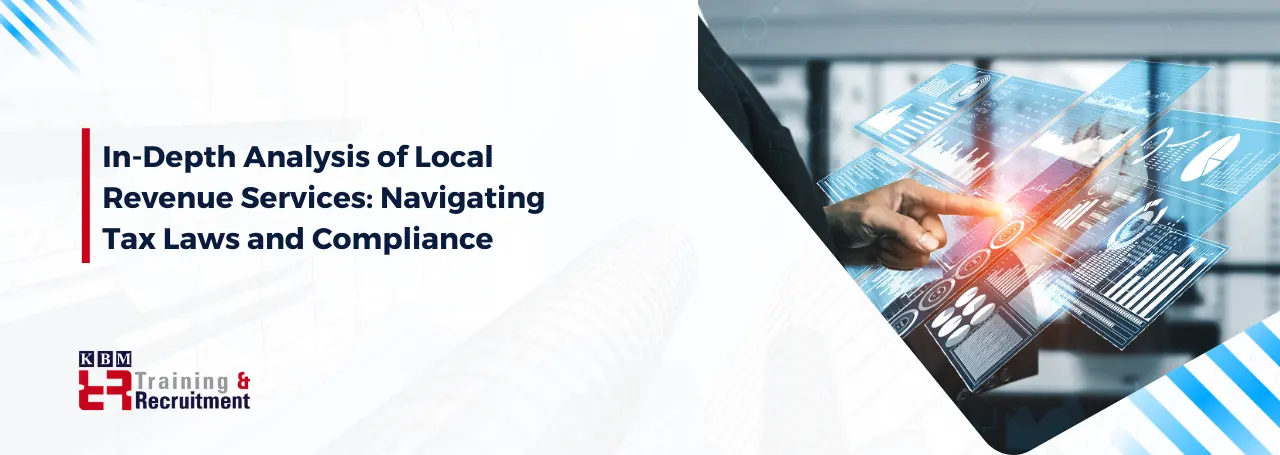Local revenue services play a pivotal role in the fiscal health of communities, collecting taxes that fund essential services and infrastructure. Understanding the complexities of local tax laws and compliance is critical for entities and individuals.
In this detailed analysis, we will explain the landscape of local revenue services, providing insights into tax regulations, compliance requirements, and strategies for navigating this crucial aspect of financial management.
The Role of Local Revenue Services
Local revenue services, often overseen by municipal or county governments, collect taxes that sustain local communities. These taxes typically include property, sales, business, and other levies imposed on specific activities within the jurisdiction.
Funding Local Initiatives
Local tax authorities collect revenue to fund vital public services such as schools, infrastructure maintenance, public safety, and community development projects. Understanding the local revenue ecosystem is essential for individuals and businesses to contribute responsibly to their community's well-being.
Navigating Local Tax Laws
- Property Taxes: Property taxes are a substantial revenue source for local governments. It's vital to comprehend how these taxes are determined, relying on property values and local millage rates for assessment. Homeowners and businesses must stay informed about property tax laws to budget for this recurring expense accurately.
- Sales Taxes: Local sales taxes vary widely, and businesses must comply with specific rates and regulations in their area. This involves understanding which goods or services are subject to sales tax, collecting customer taxes, and remitting them to local revenue services.
- Business Taxes: Local jurisdictions often impose taxes on businesses within their boundaries. These may include license fees, gross receipts taxes, or other levies. Business owners must navigate these regulations to ensure compliance and avoid penalties.
- Special Assessments and Fees: Some localities levy special assessments or fees for specific services or improvements. These can include charges for waste disposal, street lighting, or infrastructure projects. Individuals and businesses should be aware of these additional costs when budgeting.
Compliance Requirements
- Record-Keeping: Maintaining precise financial records is fundamental to tax compliance. Both businesses and individuals must keep comprehensive records of income, expenses, and pertinent transactions. This documentation serves as evidence in case of audits or inquiries from local revenue services.
- Timely Payments: Adhering to tax payment deadlines is crucial for avoiding penalties and interest charges. Individuals and businesses should know the due dates for property taxes, business taxes, and other local levies. Timely payments contribute to smooth financial operations and foster a positive relationship with local tax authorities.
- Reporting Requirements: Local revenue services may require periodic reporting of financial information. This could include filing annual tax returns, submitting sales tax reports, or providing documentation for specific assessments. Staying informed about reporting requirements is essential for maintaining compliance.
Strategies for Navigating Local Taxes
- Seek Professional Advice: Navigating local tax laws can be complex, and seeking advice from tax professionals is advisable. Certified accountants or tax consultants can provide valuable insights, help optimise tax liabilities, and ensure compliance with local regulations.
- Stay Informed: Local tax laws may change, and staying informed about updates is crucial. Subscribing to newsletters, attending local workshops, and regularly checking official tax websites can help individuals and businesses stay abreast of changes to local tax codes.
- Leverage Technology: Leveraging technology, such as accounting software and tax management tools, can smoothen the process of monitoring income, expenses, and tax obligations. Automated systems can help ensure accurate calculations and timely payments.
- Engage with Local Authorities: A positive relationship with local revenue services can be beneficial. Communication channels should be open, and inquiries or clarifications about tax matters should be addressed promptly. Building a cooperative relationship fosters compliance and understanding.
- Budgeting and Planning: Incorporating local tax obligations into financial planning is essential. Individuals and businesses should budget for property, sales, and other local levies to avoid financial strain when payments become due.
Future Trends in Local Revenue Services
- Digital Transformation: Local revenue services increasingly adopt digital platforms to streamline tax collection processes. Online payment options, electronic filing, and digital communication channels are becoming standard practices to enhance efficiency and convenience.
- Data Analytics for Compliance: Data analytics tools are growing in local revenue services to improve compliance monitoring. These tools enable authorities to identify irregularities, trends, and potential non-compliance, allowing for targeted interventions.
- Sustainability and Local Taxation: As sustainability becomes a global priority, some localities may explore innovative tax incentives or levies to encourage environmentally friendly practices. Businesses and individuals should stay attuned to changes in local tax structures related to sustainability initiatives.
The Bottom Line
In conclusion, navigating local revenue services requires a comprehensive understanding of local tax laws, compliance requirements, and strategic planning. Whether you are a homeowner, business owner, or individual taxpayer, staying informed and engaging with local tax authorities are vital to fulfilling your financial responsibilities and contributing to the prosperity of your community.
Through proactive measures, harnessing technology, and staying updated on evolving trends in local revenue services, individuals and businesses can confidently navigate the intricacies of local taxation. In doing so, they contribute to the sustainable development of their local communities.






















